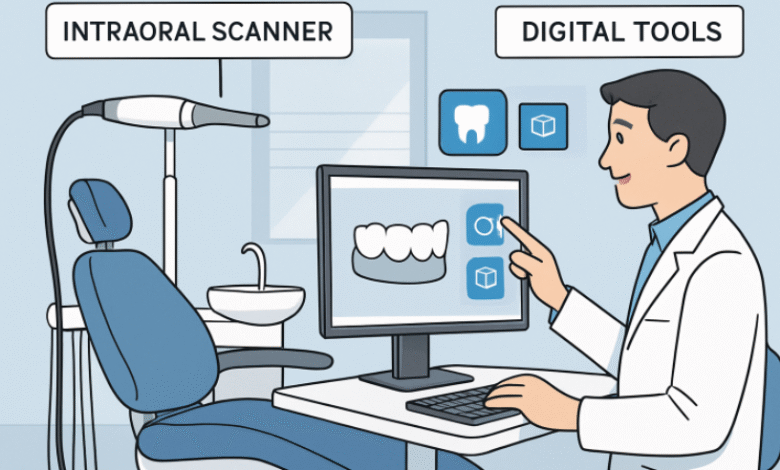Equipping Dental Practitioners with the Skills to Lead in an Evolving Oral Healthcare Environment

Introduction
In today’s rapidly evolving dental landscape, staying current with new technologies and in-demand skills is more important than ever. The integration of advanced tools, modern treatment options, and shifting patient expectations necessitates that dental professionals continually refine their expertise. To meet these challenges and remain competitive, investing in high-quality learning resources and up-to-date course information is crucial for both seasoned practitioners and new graduates aiming to deliver superior patient care and drive practice success.
Leveraging the most accurate course information not only helps dental professionals master advanced techniques but also positions them as leaders within their communities. Whether developing new clinical competencies or refining patient communication, a strategic approach to ongoing education can set a practice apart in an industry where adaptability and knowledge are key.
Technological Proficiency
Technological advancements continue to shape modern dentistry, transforming everything from diagnostic methods to routine treatments and practice management. Mastery of digital workflows, such as CAD/CAM systems and intraoral scanning, enables precise and efficient restoration work. The integration of 3D printing is quickly becoming the standard for creating dental prosthetics and surgical guides directly in the practice, reducing turnaround times and improving outcomes.
Teledentistry is also experiencing widespread adoption, enabling virtual consultations and expanding access to oral healthcare services for underserved populations. Another essential area is practice management software, which enhances operational efficiency by streamlining appointment scheduling, patient billing, and digital record-keeping.
- Digital Workflow Mastery: Knowledge of CAD/CAM, intraoral scanners, and 3D printing technology is fundamental for contemporary restorative and prosthodontic treatments.
- Teledentistry: The utilization of secure platforms for remote consultations ensures accessibility, continuity of care, and improved patient satisfaction.
- Practice Management Software: Proficiency with modern office software has become indispensable for daily operations and patient management.
Staying current with technology not only raises the standard of care but also helps practices remain at the forefront of the field.
See also: How Thai and Certified Russian Translation Services Protect Your Travel Plans
Advanced Clinical Capabilities
Specialization remains a powerful career development strategy for dental professionals. Expertise in high-demand areas, such as dental implants, cosmetic procedures, and orthodontics, sets practices apart and meets the growing demand for specialized services from patients.
- Implant Dentistry: With the rise in edentulism and increasing public awareness, dental implantology has become a highly sought-after skill, offering robust clinical and financial potential.
- Cosmetic Dentistry: Increasing numbers of patients are seeking aesthetic enhancements, driving demand for procedures such as veneers, teeth whitening, and comprehensive smile makeovers.
- Orthodontics: The increasing popularity of clear aligner therapy necessitates advanced training to achieve optimal results and satisfy patients’ preferences for nearly invisible braces.
Investing in training and certification in these specialties not only elevates career prospects but also delivers superior patient outcomes that drive referrals and practice growth.
Communication and Patient Care
Strong interpersonal skills are just as critical as technical ability in modern dental practice. Building trust with patients through effective communication results in enhanced satisfaction and long-term loyalty.
- Active Listening: Understanding patients’ concerns and medical histories builds rapport and lays a foundation for tailored, patient-centered care.
- Patient Education: Clear explanations of complex procedures and preventive strategies empower patients to make informed decisions and improve compliance.
- Empathy: Sensitivity to anxiety and emotional needs can transform patient experiences, reduce apprehension, and contribute to positive word-of-mouth recommendations.
By prioritizing patient care and communication, practices can enhance retention rates and cultivate a welcoming environment.
Business Acumen and Practice Management
Clinical skills do not solely determine success in dentistry; effective business management is also essential. From sound financial planning to insightful marketing, dental professionals must navigate the complexities of running a profitable practice.
- Financial Management: Skills in budgeting, insurance coordination, and cost control ensure the long-term sustainability of a practice.
- Marketing and Branding: In today’s competitive market, targeted marketing strategies and a robust digital presence are essential for attracting new patients and establishing a reputable brand.
- Leadership and Team Development: Fostering a positive team environment and providing opportunities for staff growth advances both patient satisfaction and operational efficiency.
These business-focused skills are essential for optimizing practice performance and adapting to changes in the dental industry.
Continuing Education and Certifications
Ongoing education is a hallmark of exceptional dental professionals who are dedicated to excellence in patient care. Pursuing advanced certifications and attending various workshops and seminars not only helps keep their skills sharp but also ensures their knowledge remains current with the latest developments in the field.
- Advanced Certifications: Specializing in highly sought-after areas, such as laser dentistry, sleep apnea therapy, or other emerging fields, allows professionals to diversify their service offerings. These specialized skills can significantly enhance their practice and appeal to a broader patient base.
- Workshops and Seminars: Regular participation in industry conferences, workshops, and seminars exposes practitioners to breakthrough technologies, innovative techniques, and evolving best practices. This ongoing exposure supports continuous professional growth and keeps practitioners at the forefront of dental care advancements.
- Online Learning Platforms: With the proliferation of flexible e-learning opportunities, dental professionals can easily access new training modules, webinars, and courses regardless of their geographical location. This convenience ensures they can stay up-to-date without disrupting their busy schedules.
By prioritizing lifelong learning and continuous professional development, dental professionals demonstrate their unwavering commitment to delivering cutting-edge, evidence-based care. This dedication not only benefits their patients but also helps maintain a clear and competitive edge in the dynamic field of dentistry.
Adaptability and Lifelong Learning
The pace of change in dentistry demands resilience, open-mindedness, and dedication to personal and professional growth. Embracing new tools, maintaining robust professional networks, and regularly assessing one’s skills are all essential elements of a thriving career.
- Embracing Change: Proactively adopting new methods and keeping pace with innovations is key for relevance.
- Networking: Collaboration with peers through professional organizations and study groups fosters knowledge sharing and mentorship, promoting mutual growth and development.
- Self-Assessment: Reflective practices uncover areas for growth and ensure high standards of patient care are maintained.
Adaptability and a lifelong commitment to learning are the cornerstones of sustained success and excellence in the dental profession.
Focusing on these essential skills allows dental practitioners to confidently navigate the challenges of 2025 and beyond, ensuring enduring success and excellence in patient care.

